by Admin | Apr 23, 2016 | World Leaders in AIWS Award Updates
(April 25th, 2016) Distinguished Professor of Education and UNESCO UCLA Chair in Global Learning and Global Citizenship Education, Dr. Carlos Alberto Torres visits Beijing, in the People Republic of China in the week of April 24-30, 2016 in his role as President of the World Congress of Comparative Education Societies. A goal is to evaluate the state of progress of the organization of the World Congress of Comparative Education Societies which will take place at Beijing Normal University August 22-26.
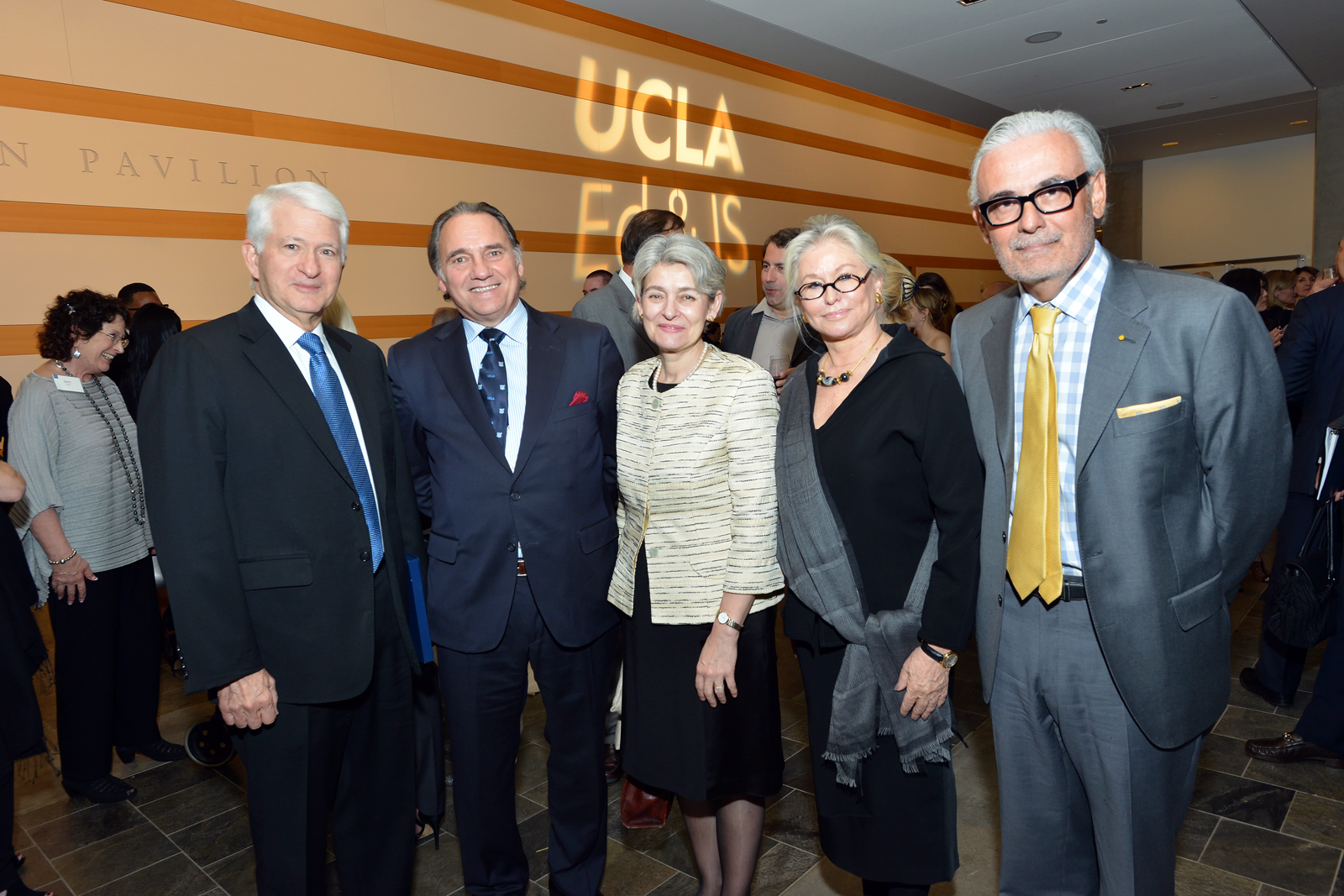
Please the information in the following link. http://www.wcces.com
Additionally, in his role as UNESCO Chair he will be coordinating the work of the co-principal investigators in Beijing collaborating in the comparative research on Teaching and Learning Global Citizenship Education. This project, which is just beginning, is internationally coordinated by the UNESCO UCLA Chair and involves work on 20 cities in most continents, with the contribution of more than 40 researchers.
by Admin | Apr 23, 2016 | AI World Society Summit
( April 25th, 2016) This news is not confidence-building, especially because Google is so huge and pervasive. Using paper, old-fashioned typewriters, land-line telephones and libraries with books looks increasingly attractive….

The company says that Google.com is a “partially dangerous” Web site with some pages that may install malware on your computers or try to steal your personal information. Give them credit for honesty.
The Guardian reports that Google’s “Safe Browsing” section of its online- transparency report “delivers a less-than-impressed verdict on the company’s main search engine.’’
“Some pages on google.com contain deceptive content right now,” explains the automated Google report, which has assigned the search engine a partially dangerous status.
The report says, among other things:
Some pages on this website install malware on visitors’ computers.
Attackers on this site might try to trick you to download software or steal your information (for example passwords, messages, or credit card information).
Some pages on this website redirect visitors to dangerous websites that install malware on visitors’ computers, including: 7b726aeb-a-62cb3a1a-s-sites.googlegroups.com,polnu4ewtan4iwki.ws, and 40d0dfd9-a-62cb3a1a-s-sites.googlegroups.com.
Dangerous websites have been sending visitors to this website, including: maeaflordapele.com, valeimaginar.blogspot.com, and bou7out.blogspot.com.
The tricky thing is, of course, that so many of us have become utterly dependent on Google.
by Admin | Apr 23, 2016 | AI World Society Summit
(April 25th, 2016) Apple has released figures indicating that U.S. authorities asked for user data from Apple accounts 1,015 times during the second half of 2015.

The requests pertain to information on such services as iMessages, e-mails, photos and device backups.
That number was an increase from 971 during the 2015’s first half and 788 during the year-earlier period. The company said that it gave the government at least some data in 82 percent of the requests — an average percentage for a year for the company.
The number of users affected by such requests late 2015 was about the same as a year earlier.
by Admin | Apr 23, 2016 | AI World Society Summit
(April 25th, 2016) U.S. Congressman Ted Lieu called for a federal investigation of a gap in security that lets people get into others’ phones to record calls, texts and locations.

The Guardian reports that security flaws within the system that brokers connections, billing and transfers messages between cell phone networks – called Signaling System No 7 (SS7 – allow remote access to cell phone users’ data anywhere in the world regardless of the security system of their phones, using just their phone number.
Mr. Lieu said: “The applications for this vulnerability are seemingly limitless, from criminals monitoring individual targets to foreign entities conducting economic espionage on American companies to nation states monitoring U.S. government officials.”
Encrypted messaging services such as WhatsApp are unaffected, The Guardian reported.
by Admin | Apr 23, 2016 | Event Updates
(April 25th, 2016) Vietnamese President Tran Dai Quang has asked for Japan’s continued assistance in helping Vietnam deal with climate change, which has been linked to saline intrusion in the fresh water of coastal areas as well as to drought. He said that climate change is an urgent issue and needs long-term solutions.
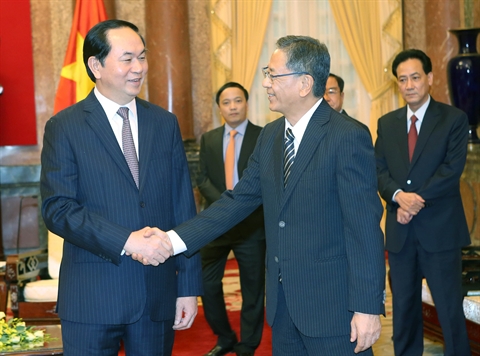
He make the request in a meeting with Japanese Ambassador to Vietnam Fukada Hiroshi in Hanoi on April 19.
The president also thanked Japan for its support for Vietnam’s economic development and proposed that the two nations further strengthen their ties.
He added that Vietnam, at the invitation of Japanese Prime Minister Shinzo Abe, will send a high-level delegation headed by Prime Minister Nguyen Xuan Phuc to Japan to attend the G7 Summit in May 26-27, and is preparing to welcome a visit by a ministerial-level delegation from Japan to Vietnam later this year.
President Tran Dai Quang also expressed his hope that Japan will continue to support Vietnam as it seeks to protect its rights in the South China Sea in the face of Chinese expansionism.
by Admin | Apr 23, 2016 | Initiative
(April 25th, 2016) Ambassadors from Russia and the North Atlantic Treaty Organization met last Wednesday for the first time in nearly two years, as continued Russian attacks on eastern Ukraine and saber-rattling in the Baltic maintained high military tensions between Russia and the NATO allies.
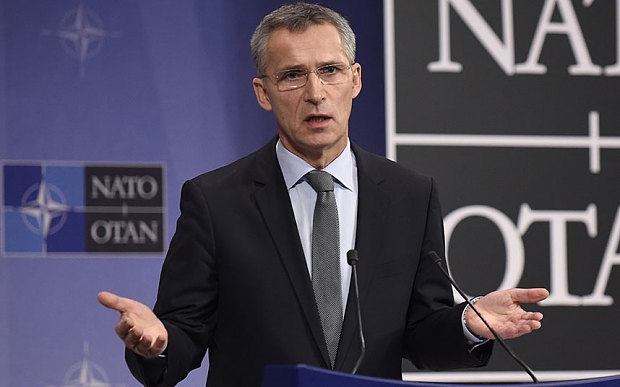
NATO Secretary-General Jens Stoltenberg
The Wall Street Journal said that there were no agreements but that officials called the meeting constructive and substantive.
“We had a frank and serious discussion,” NATO Secretary-General Jens Stoltenberg said after the meeting. “NATO allies and Russia hold very different views. But we have listened to what each other had to say.”
NATO officials emerged from the meeting with some hope that military-to-military communications between Moscow and the alliance could be revived to lessen the chance of armed confrontation.
The meeting followed a series of incidents in the Baltic Sea, most recently with the Russians buzzing a U.S. warship and a U.S. Air Force reconnaissance plane.
After the meeting, Alexander Grushko, the Russian ambassador to the alliance, complained about U.S. forces operating close to Kaliningrad, the Russian exclave that is home to a number of military bases.
by Admin | Apr 23, 2016 | AI World Society Summit
( April 25th, 2016) In a wide-ranging conversation on April 18 with Harvard Prof. Thomas Patterson of The Boston Global Forum, Yasuhisa Kawamura, Director-General for Press and Public Policy of the Japanese government, discussed Japan’s hopes and concerns as the G7 Summit nears. Japan will host the May 26-27 conference. Mr. Yasuhisa is the main spokesman for Prime Minister Shinzo Abe.
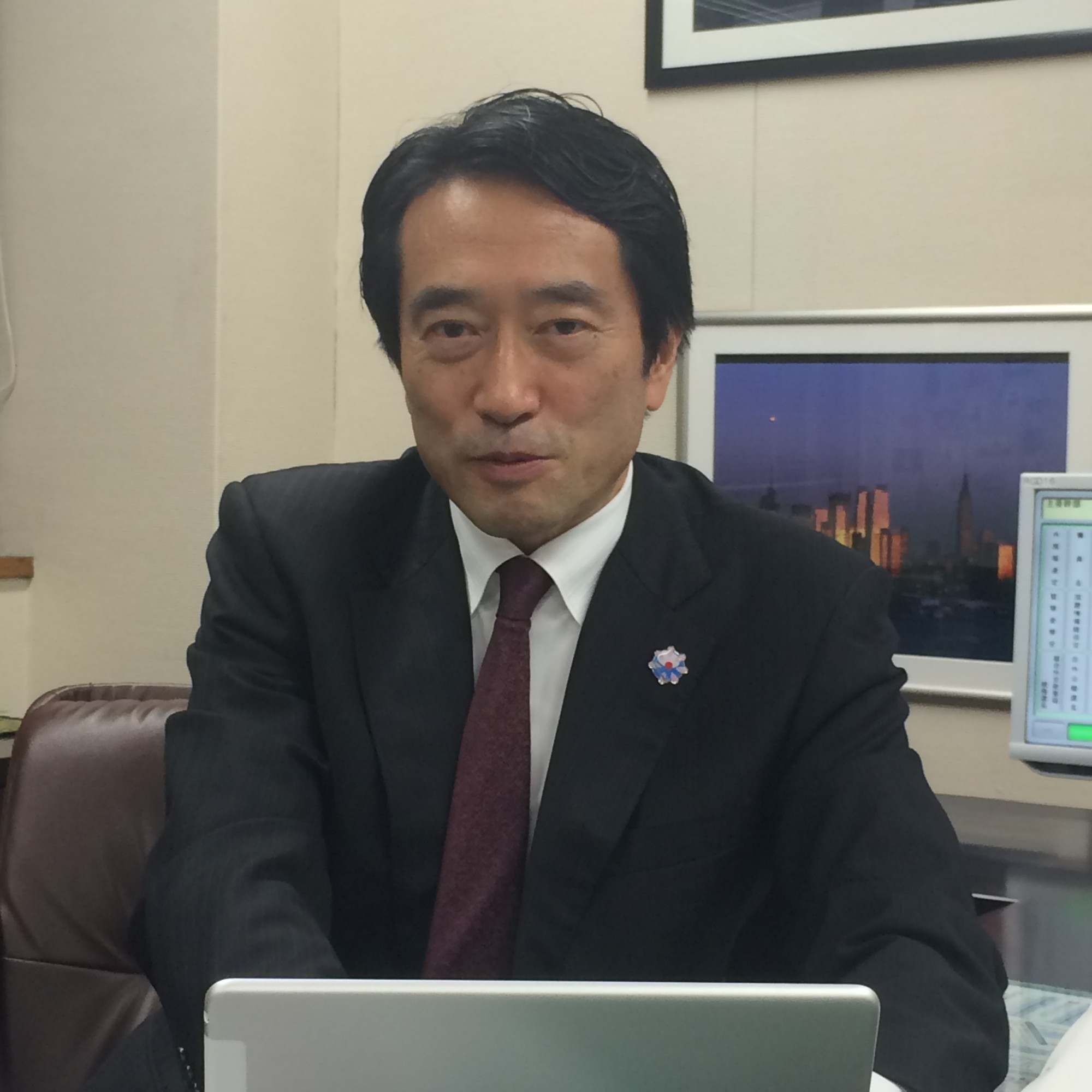
The conversation was another in the series of online dialogues in the BGF-G7 Summit Initiative, in which the BGF is working with Japanese officials to craft proposals to be considered by the national leaders at the summit.
Professor Patterson led off by expressing sorrow about the death and suffering in Japan’s Kyushu region ravaged by recent earthquakes. Mr. Kawamura, in response, thanked the U.S. for offers of aid and discussed ongoing rescue efforts.
On the G7 Summit, Mr. Kawamura emphasized the “fundamental values’’ of democracy, human rights and free markets shared by the G7 members that will inform all their decisions.
He forecast that major themes of the conference will include how to address the growing use of force to, as he said, “change the status quo,’’ in reference to Russia’s seizure of Crimea and aggression in eastern Ukraine; North Korean nuclear and missile saber-rattling, and Chinese military threats in the East Asia and South China Seas. Terrorism, which mostly now means Islamic terrorism, will, of course, be another big topic.
Mr. Kawamura particularly praised the increasing cooperation of Japan, South Korea and the United States in trying to protect northeast Asia from the North Korean regime. And in reference to that threat and to Chinese aggression, he cited efforts to increase the deterrence power of Japan, the United States and some other Pacific nations.
Not surprisingly, he said that other summit themes would include coordinating economic policies; climate change; addressing new global health dangers, presumably such as the Zika virus; advancing support for universal healthcare; improving the status of women, and pushing for environmentally sustainable economic development. The last item includes assisting developing nations to improve their physical infrastructure, long a priority of the Japanese government.
When asked to what extent improving cybersecurity, the BGF’s biggest theme in the BGF-G7 Initiative, will be discussed at the summit, Mr. Kawamura, said that summit planners are still working out final details of the agenda. But in any event, he said, Japan believes, with the BGF and the U.S., that “the rule of law’’ must be applied to cyberbehavior.
by Admin | Apr 23, 2016 | Initiative
( April 25th, 2016) TOKYO — North Korea appears to be preparing to conduct another nuclear test, South Korean President Park Geun-hye said Monday, citing signs of increased movement near the North’s nuclear test site.
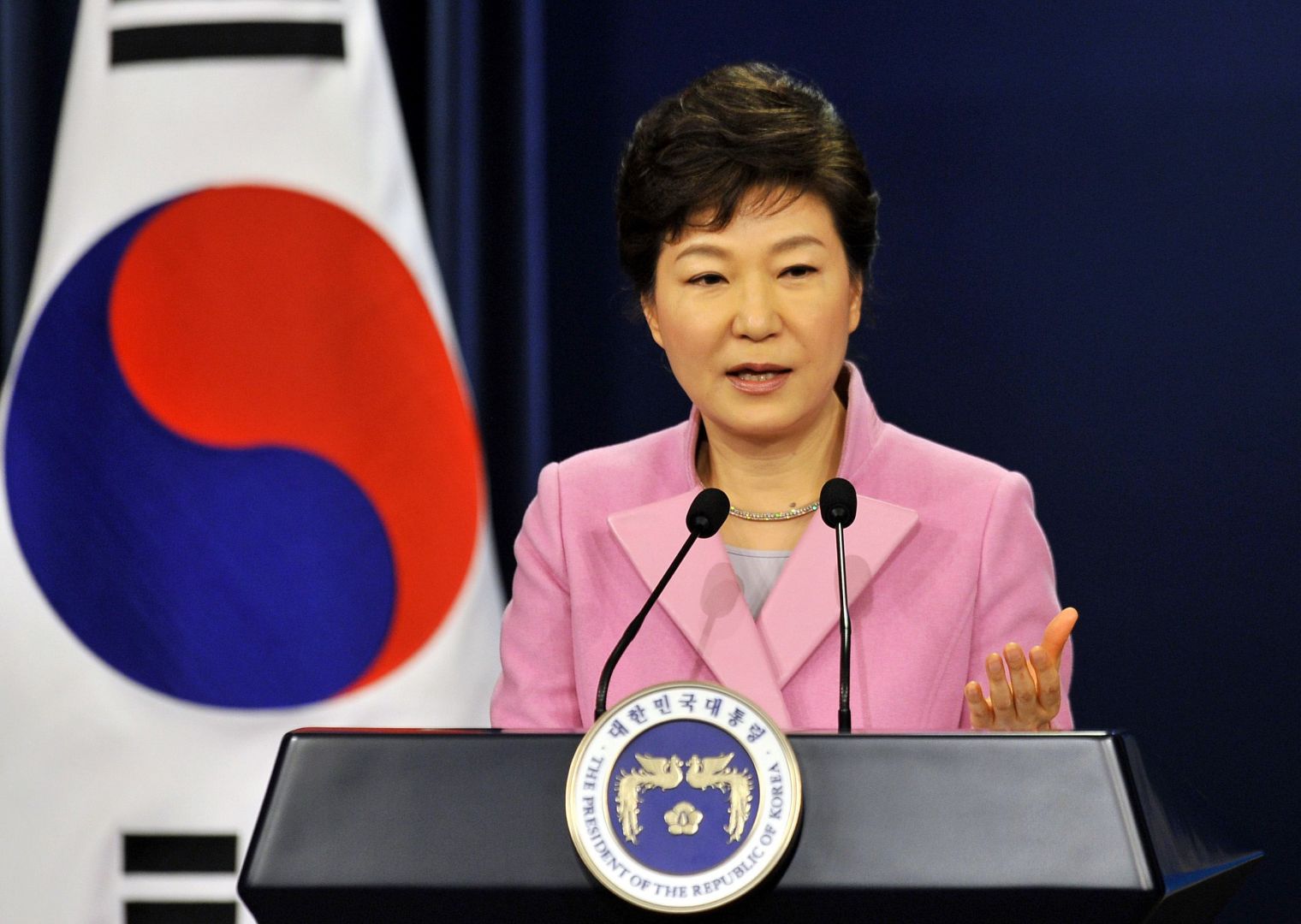
With a much-hyped congress of the communist Workers’ Party to be held early next month, Kim Jong Un appears to be trying to burnish his credentials, and analysts say a fifth nuclear test would be a sure way to do that.
“Recently, signs of preparations for a fifth nuclear test have been detected,” Park said during a meeting with her aides Monday. “We are in a situation in which we cannot predict what provocations North Korea might conduct to break away from isolation and to consolidate the regime.”
This came after the South Korean Defense Ministry said that North Korea’s next underground nuclear test may be of a miniaturized warhead, rather than of the standard atomic devices it is thought to have detonated previously.
“Given the latest developments, North Korea could carry out an underground nuclear warhead test, and we are keeping close tabs on it,” Moon Sang-gyun, a Defense Ministry spokesman, told reporters in Seoul on Monday.
The North’s official Korean Central News Agency reported last month that Kim ordered “a nuclear warhead explosion test and a test-fire of several kinds of ballistic rockets able to carry nuclear warheads” to be carried out “in a short time.”
North Korea claims that it has mastered the technology to make nuclear weapons small and light enough to fit on a missile, but there has been no proof. But an increasing number of military top brass and private-sector analysts think that North Korea either will have made or will be on the brink of making such a technological advance soon.
South Korean officials warned Sunday that they had detected a noticeable increase in vehicles and people moving about the North’s Punggye-ri nuclear test site, particularly near its north portal tunnel.
Analysts at 38 North, a website devoted to watching and analyzing North Korea, said that they also saw, in satellite imagery, increased movement around the north portal but that there was little evidence that Pyongyang was planning an imminent nuclear test.
“Nevertheless, that possibility can not be entirely ruled out since the North may be able to conduct a nuclear test on short notice with few indications that it intends to do so,” Jack Liu, a military analyst, wrote in a note on the site.
A fifth nuclear test would create another conundrum for the international community. Kim’s regime has proved impervious to coordinated efforts to change his calculus when it comes to the country’s nuclear program.
Last month, the U.N. Security Council passed the toughest sanctions yet against North Korea as punishment for its January nuclear test and a long-range rocket launch in February.
Yet Kim has remained defiant, issuing an almost daily barrage of threats and continuing to launch rockets and short-range missiles. An attempt to launch a previously untested intermediate-range ballistic missile last week was deemed to have failed.
At a forum in Seoul, Lim Sung-nam, South Korea’s vice foreign minister, said that more pressure and punishment against North Korea is needed.
“We can no longer afford to be pushed around by North Korea’s deceit and intimidation,” Lim said. “The leadership in Pyongyang must be pressed much harder until it changes its fundamental calculation regarding the value of its nuclear arsenal and delivery capabilities.”
In addition to supporting the tough U.N. resolutions, Park’s government has brought in unprecedented bilateral sanctions against North Korea, closing an inter-Korean industrial park and cutting off all humanitarian aid except to babies and pregnant women.
by Admin | Apr 17, 2016 | World Leaders in AIWS Award Updates
(April 18th, 2016) On July 25-29 the first International Institute on Global Citizenship Education will be held at the Graduate School of Education & Information Studies at the University of California at Los Angeles. It is being sponsored by the Paulo Freire Institute and the UNESCO Chair in Global Learning and Global Citizenship Education at UCLA.
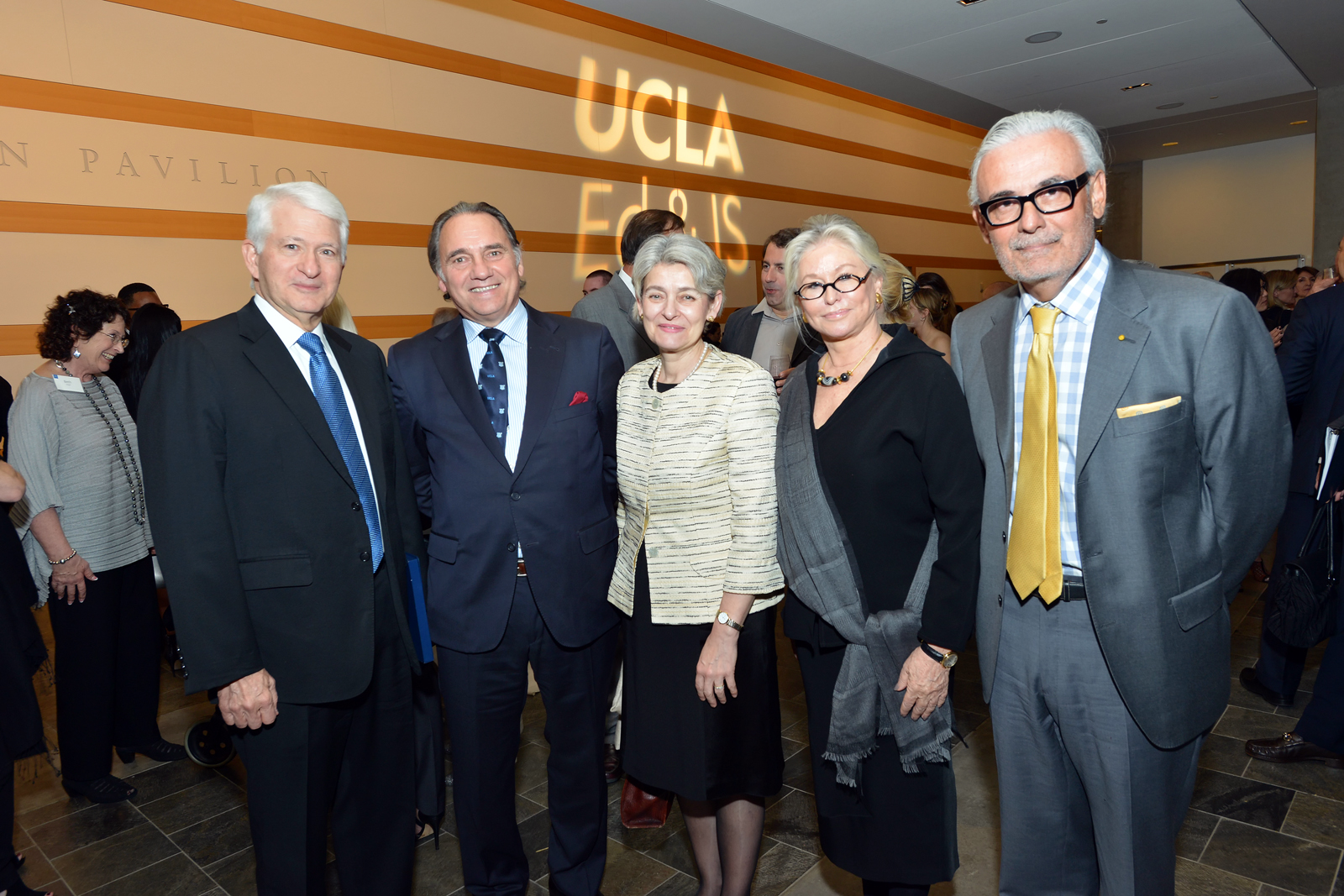
The Boston Global Forum has close links with the UNESCO program.
Prof. Carlos Alberto Torres, a member of the BGF’s Board of Thinkers, is Distinguished Professor of Education and UNESCO Chair in Global Learning and Global Citizenship Education at UCLA; director of the Paulo Freire Institute, and president of the World Council of Comparative Education Societies.
Nguyen Anh Tuan, the BGF’s CEO, is Chairman of the International Advisory Committee of the UNESCO Global Learning and Global Citizenship Education program at UCLA
The July 25-29 program is part of the Global Education First Initiative supported by UNESCO that encourages national government agencies, U.N. and other international public- and private-sector sector organizations, scholars and other individuals to pursue policies and practices to promote global citizenship education.
The Institute will address these questions:
· What is Global Citizenship Education (GCE) and how can it address global problems?
· What and whose values and skills should be included in GCE?
· How can GCE reconcile and complement national and local citizenship education?
· To whom is GCE offered and who is providing it?
· What are the best practices of policies, curricula and instruction of GCE?
Professor Torres is the director of the program. Other faculty members in the program include:
- Christopher Castle, UNESCO Global Coordinator for HIV and AIDS.
- Chen Wei Chang, Ph.D., National Academy for Educational Research, Taiwan.
- Utak Chung, Ph.D., Director, Asia-Pacific Center of Education for International Understanding (APCEIU).
- Anantha Duraiappah, Ph.D., Director, UNESCO Mahatma Gandhi Institute.
- Greg Misiaszek, Ph.D., Beijing Normal University, China.
- Lauren Ila Misiaszek, Ph.D., Beijing Normal University, China.
- Lynette Shultz, Ph.D., University of Alberta, Canada.
- Ana Elvira Steinbach Silva Raposo Torres, Ph.D., Federal University of Brazil.
For further information, please consult this Website
or email: [email protected]








